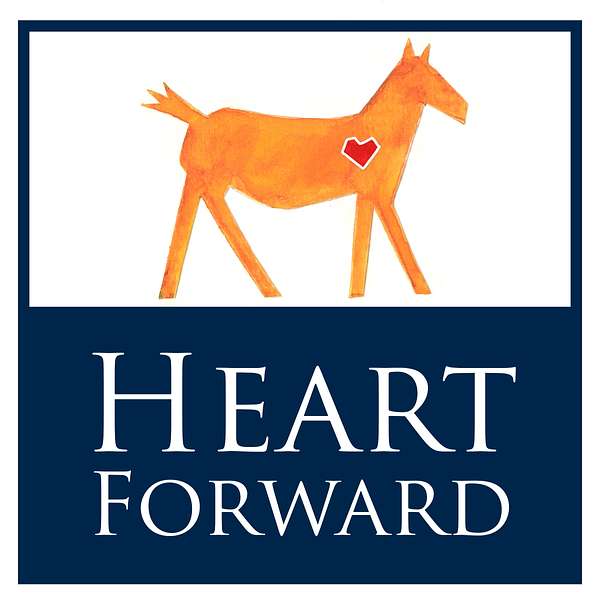
Heart Forward Conversations from the Heart
The American mental health system is broken beyond repair. Rather than trying to tweak a system which fails everyone, it is time to commit to a bold vision for a better way forward. This podcast explores the American system against the plumb line of an international best practice, recognized by the World Health Organization (WHO), in Trieste, Italy. The 40-year old Trieste model demonstrates how a community-based treatment system upholds the human rights of the people served. The Trieste story is anti-institutional and models the therapeutic value of social connection. Topics will address contemporary challenges in the American failed mental health system as contrasted with the Italian approach toward accoglienza – or radical hospitality – as the underpinning of their remarkable culture of caring for people. Interviews will touch upon how the guiding principles of the Italian system – social recovery, whole person care, system accountability, and the human right to a purposeful life – are non-negotiable aspects if we are to have any hope of forging a new way forward in our American mental health system. This podcast is curated and hosted by Kerry Morrison, founder and project director of Heart Forward LA (https://www.heartforwardla.org/). Heart Forward is collaborating with Aaron Stern at Verdugo Sound as the technical partner in producing this podcast (https://www.verdugosound.com). Kerry Morrison is also the author of the blog www.accoglienza.us.
Heart Forward Conversations from the Heart
Finding meaning in daily living: A conversation with Dr. Deborah Pitts on the untapped promise of integrating occupational therapy in mental health settings
Dr. Deborah Pitts is a Professor of Clinical Occupational Therapy at the USC Chan Division of Occupational Science and Occupational Therapy.
Her practice expertise includes community-based mental health and psychiatric rehabilitation, particularly in the permanent supportive housing (PSH) context, and the ‘lived experience’ of recovery for persons labeled with psychiatric disorders, in particular occupational engagement and psychosis.
Her doctoral dissertation focused on practice reasoning of front-line service providers (i.e., Personal Service Coordinators) in a community-based mental health wrap-around program known as a Full-Service Partnership (FSP) serving persons labeled with psychiatric disabilities.
She took the lead for the Chan Division’s participation in the USC Homeless Initiative through her partnerships with local organizations providing services to persons experiencing homelessness to create student learning opportunities.
In this interview, we will explore the basic framework to understand the untapped potential to fully integrate occupational therapy into residential contexts to come alongside and support people living with a serious mental illness. We will tease out the distinction between psychosocial rehabilitation and clinical interventions. We’ll define the terms “occupational science” and “occupational therapy" and "functional cognition." She will underscore the importance of developing a relationship between the therapist and the client – and this takes time, something the American payment system does not reward for when reimbursing for services.
And, most important, we will explore how occupational therapy could be additive to the service support teams in our homeless housing ecosystem – if we could find a way to pay for this.